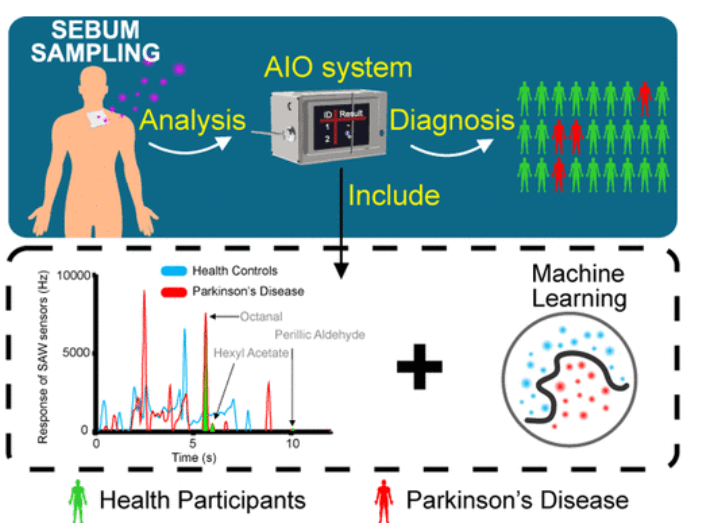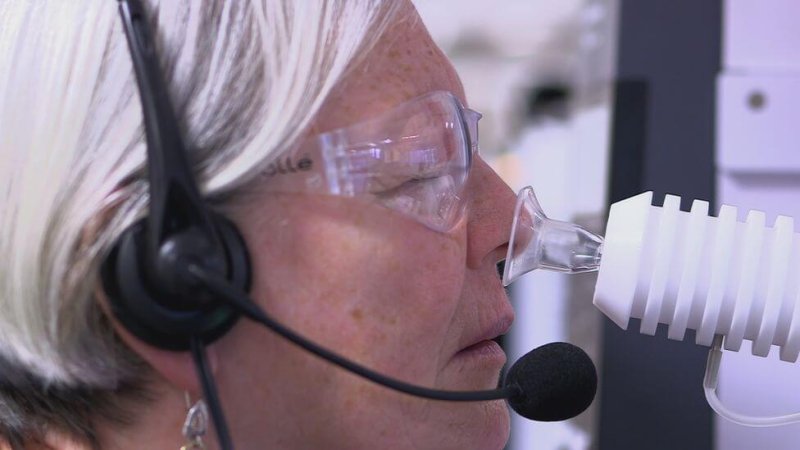A study published in ACS Omega, by Chen Xing and Liu Jun at Zhejiang University, in China, describes an invention which may be able to detect Parkinson’s before the onset of tremulousness. The device in question is an artificially intelligent electronic nose.
The quest the two researchers embarked on to build this nose began in 2019. That was when they heard reports of Joy Milne, a retired nurse living in Scotland, who could detect people with Parkinson’s from a distinctive odour they emitted—distinctive to her, at least, though for reasons still obscure, undetectable by others.
Mrs Milne first noticed this odour when her husband developed the illness. She made the general connection later, when she smelled it at sufferers’ support groups attended by her spouse. Tests using clothes worn by patients confirmed her ability. She even noted one seemingly healthy individual as having the disease months before other symptoms developed.
Researchers working with her looked for the odour’s source, with a view to detecting it in some other way. They found it in sebum, an oily secretion produced by the skin.
…
The upshot is a machine not much bigger than a toaster. It turns a sample of sebum into a vapour that is then probed with sound waves.
































